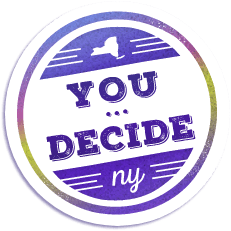
In today’s digital age, young people are exposed to a vast array of gambling media and advertising, especially if they watch sports. The influence of these messages on youth gambling behavior cannot be understated. Therefore, let’s empower our youth. Let’s empower their critical thinking skills and the ability to make informed choices. Media literacy is an essential tool to prevent youth gambling.

In this blog, we’ll explore the importance of media literacy in combating youth gambling and offer guidance on how to foster these skills.
Understanding Youth Gambling and Media Influence
Digital Age Challenges: In the age of smartphones and the internet, young people are constantly bombarded with advertisements, social media content, and online gaming platforms that may promote or normalize gambling behaviors.
Misleading Messages: Many gambling-related advertisements glamorize the activity, making it appear exciting and potentially lucrative, without adequately portraying the risks and consequences.
Peer Influence: Youth are influenced not only by advertising but also by the behaviors of their peers. Social media platforms often showcase friends or influencers engaging in gambling activities.
The Role of Media Literacy
Media literacy is the ability to critically analyze and interpret media messages. This includes advertisements, entertainment content, and social media posts. Here’s how media literacy can help youth combat gambling ads:
- Teach young people to identify persuasive techniques used in gambling-related ads, such as emotional appeals, celebrity endorsements, and the portrayal of gambling as a means of social success.
- Encourage critical thinking by discussing the potential bias of media messages. Help youth recognize that advertisers may have a financial interest in promoting gambling.
- Media literacy can empower young people to evaluate the potential risks and consequences of gambling, helping them make informed decisions.
- Beyond media literacy, promote digital literacy to help youth understand the algorithms, tracking mechanisms, and data collection practices that underlie targeted advertising.
Media Literacy In Action
You can make a difference. Through youth advisory committees led by the New York Council on Problem Gambling, we’ve learned that youth from age 12 through to 24 rely on their parents. Their parents’ opinions, approvals and support make a difference. Therefore, you make a difference, and you can be a vital advocate for supporting your youth in avoiding youth gambling. Here are some ways you can support youth’s avoidance of gambling activities:
- Create an environment where young people feel comfortable discussing gambling-related content. Encourage their questions promote their critical thinking on the gambling advertising they see.
- When coming across gambling advertisements, engage in discussions about the messages portrayed. Encourage your child to express their thoughts and feelings about what they see.
- Teach the importance of fact-checking and verifying information they see in the ads. Discuss how false or misleading information can contribute to distorted views on gambling. Knowledge is power, and we want to empower our youth to decide not to gamble.
- Set screentime limits and focus the conversation on the importance of enjoying a variety of activities. Encourage a healthy balance between screen time and offline activities to reduce exposure to potentially harmful gambling media content.
Media literacy is a powerful tool in helping young people navigate the complex world of media, including gambling-related influences. By fostering critical thinking skills, promoting open dialogue, and encouraging responsible media consumption, we can empower youth to make informed choices and resist the pressures of gambling advertisements. In doing so, we can help protect the well-being of the younger generation by empowering them to make educated decisions for themselves. They’ll avoid gambling on their own, and that is empowered.
Resources and Support
To learn more about youth gambling or available support services in your area, we can help.
Visit YOUthDecideNY.org to learn more about youth gambling, the specific risks for youth, and steps to prevent it. Your knowledge becomes their power.
Visit NYProblemGamblingHELP.org to gain access to additional information about problem gambling and to identify available support services in your area.

